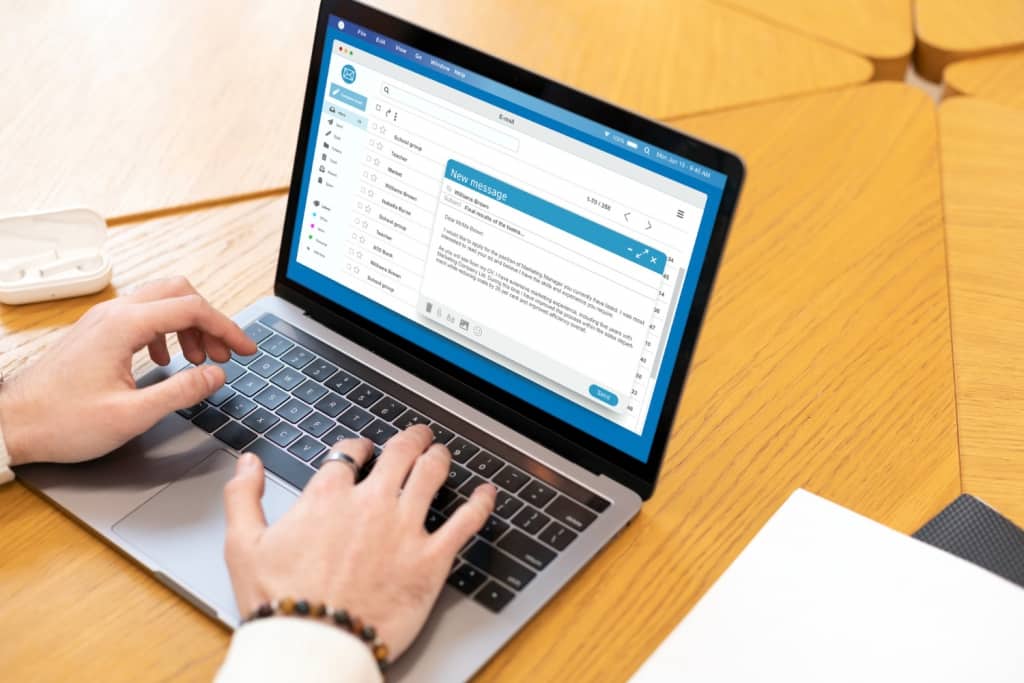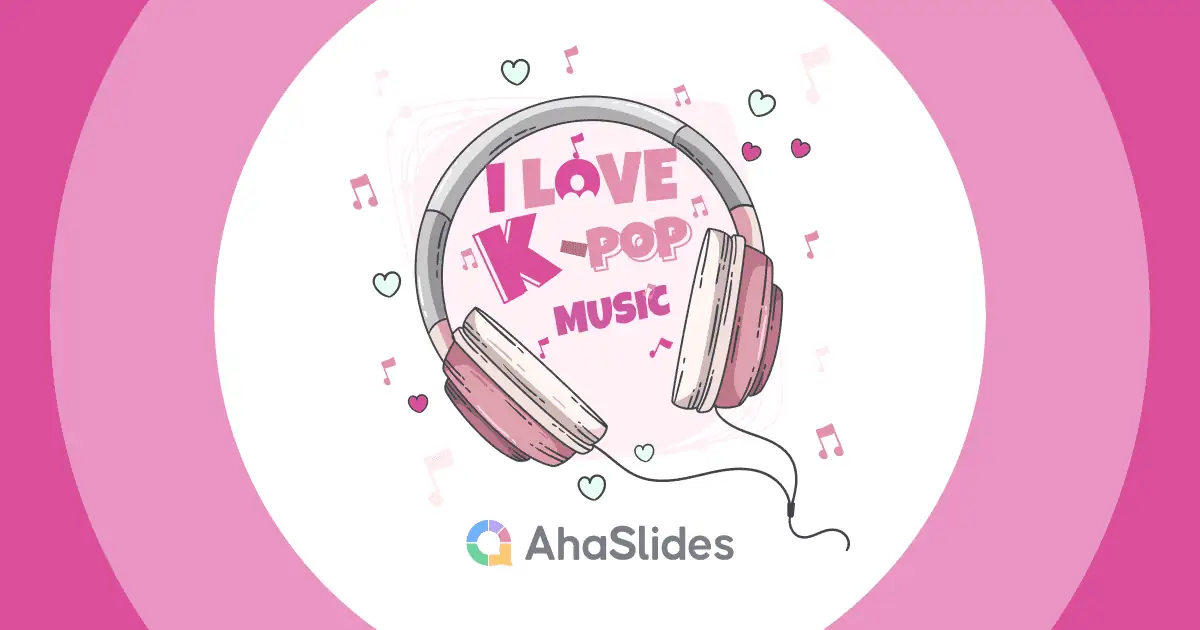Ήμασταν όλοι εκεί. Κάποιος ρωτάει «Τι κάνεις;» και ο αυτόματος πιλότος ενεργοποιείται με ένα απλό «Καλώς» ή «Μια χαρά». Αν και ευγενικές, αυτές οι απαντήσεις συχνά κρύβουν τα αληθινά μας συναισθήματα. Η ζωή μπορεί να είναι προκλητικήκαι μερικές φορές, μια «καλή» μέρα μπορεί να μας φαίνεται εντελώς απαίσια. Τι θα γινόταν αν αρχίζαμε να εκλαμβάνουμε αυτήν την ερώτηση ως ευκαιρία για γνήσια σύνδεση; pen_spark
Σε αυτήν την ανάρτηση, θα αλλάξουμε την τυπική σας απάντηση και θα εξερευνήσουμε 70+ τρόπους για να εκφραστείτε με ένα Πώς τα πάτε Απαντήστε σε συγκεκριμένες καταστάσεις. Ποιός ξέρει? Ίσως ανακαλύψετε ένα νέο επίπεδο σύνδεσης στις συνομιλίες σας.
Πίνακας περιεχομένων
- Πώς τα καταφέρνετε Απαντήστε σε περιστασιακές καταστάσεις
- Πώς τα καταφέρνετε Απαντήστε σε επίσημες καταστάσεις
- Πώς απαντάτε όταν περνάτε δύσκολες στιγμές
- Πώς απαντάτε όταν νιώθετε ευγνωμοσύνη
- Πώς κάνετε Απάντηση για επίσημο email
- Συχνές ερωτήσεις

Συμβουλές για καλύτερη δέσμευση
- Ζωντανά ερωτήσεις και απαντήσεις Εργαλείο για να ενισχύσετε την παρουσίασή σας
- Πώς να κάνετε ερωτήσεις
- Πώς να ρωτήσετε κάποιον εάν είναι εντάξει

Περισσότερη διασκέδαση στη συνεδρία παγοθραυστικού σας.
Αντί για έναν βαρετό προσανατολισμό, ας ξεκινήσουμε ένα διασκεδαστικό κουίζ για να αλληλεπιδράσετε με τους φίλους σας. Εγγραφείτε για να κάνετε δωρεάν κουίζ από τη βιβλιοθήκη προτύπων AhaSlides!
🚀 Πιάσε το δωρεάν κουίζ ☁️
Πώς τα καταφέρνετε Απαντήστε σε περιστασιακές καταστάσεις
Σε περιστασιακές καταστάσεις, δεν χρειάζεται να δώσετε μια μακροσκελή απάντηση. Αλλά ανάλογα με τη σχέση σας με το άτομο που κάνει την ερώτηση, ίσως θελήσετε να προσαρμόσετε την απάντησή σας. Για παράδειγμα, μπορεί να είστε πιο ανοιχτοί με έναν στενό φίλο παρά με έναν περιστασιακό γνωστό.
Εκτός αυτού, είναι ευγενικό να ανταποδώσετε την ερώτηση και να ρωτήσετε τον άλλον πώς τα πάει. Δείχνει ότι νοιάζεστε γι' αυτόν και δημιουργεί μια πιο ισορροπημένη συζήτηση.
Ακολουθούν μερικά παραδείγματα για το πώς απαντάτε σε περιστασιακές καταστάσεις:
- Είμαι καλά, ευχαριστώ!
- Δεν είναι κακό, τι λέτε;
- Είμαι καλά, εσύ πώς είσαι;
- Δεν μπορώ να παραπονεθώ, πώς πάει η μέρα σου;
- Πολύ καλό, ευχαριστώ που ρωτάς!
- Όχι πολύ άθλια, τι λέτε;
- Τα πάω καλά. Πώς σου φέρεται η ζωή;
- Είμαι καλά. Ευχαριστώ που κάνατε check in!
- Περιμένω. Εσύ;
- Είμαι μια χαρά. Πώς πήγε η εβδομάδα σου;
- Τα πάω περίφημα. Εσύ τι κάνεις;
- Δεν είναι πάρα πολλά για να παραπονεθώ. Εσυ ΠΩΣ ΕΙΣΑΙ?
- Νιώθω αρκετά καλά, ευχαριστώ που ρωτάς!
- Τα πάτε καλά, τι λέτε για τον εαυτό σας;
- Είμαι καλά. Πώς πάει η μέρα σου;
- Εγώ είμαι καλά, εσύ τι κάνεις;
- Όλα είναι καλά. Εσύ τι κάνεις;
- Δεν μπορώ να παραπονεθώ, πώς είσαι;
- Πολύ καλό, εσύ τι λες;
- Καθόλου άσχημα. Πώς είναι η μέρα σου;
- Είμαι καλά. Εσύ τι κάνεις;
- Τα πράγματα είναι καλά, εσύ τι λες;
- Τα πάω μια χαρά. Ευχαριστώ που ρώτησες!
- Είχα μια κουραστική μέρα στη δουλειά, αλλά νιώθω ολοκληρωμένος/η.
Πώς τα καταφέρνετε Απαντήστε σε επίσημες καταστάσεις

Σε επίσημες καταστάσεις, θα πρέπει να χρησιμοποιείτε επίσημη γλώσσα και να αποφεύγετε την αργκό ή την καθομιλουμένη για να διατηρήσετε έναν σεβαστικό τόνο και μια επαγγελματική συμπεριφορά.
Ακόμα κι αν έχετε μια κακή μέρα, προσπαθήστε να εστιάσετε στις θετικές πτυχές της εργασίας ή της κατάστασής σας. Και μην ξεχνάτε να εκφράζετε ευγνωμοσύνη στο άτομο ή τον οργανισμό με τον οποίο αλληλεπιδράτε.
Ακολουθούν μερικά παραδείγματα
Πώς απαντάτε σε επίσημες καταστάσεις:- Είμαι καλά, ευχαριστώ για την επικοινωνία. Πώς μπορώ να σας βοηθήσω σήμερα;
- Σας ευχαριστώ που με ελέγξατε. Πως μπορώ να σας βοηθήσω;
- Είμαι καλά, σε ευχαριστώ που ρώτησες. Ήταν μια παραγωγική μέρα μέχρι στιγμής.
- Είμαι υπέροχα. Σας ευχαριστώ που ρωτήσατε. Εκτιμώ την προσοχή σας στη λεπτομέρεια.
- Είμαι καλά, ευχαριστώ που ρώτησες. Ανυπομονώ για τη σημερινή μας συνάντηση.
- Είμαι καλά, ευχαριστώ. Είναι χαρά μου που βρίσκομαι εδώ σήμερα.
- Σας ευχαριστώ για το ερώτημά σας. Είμαι καλά. Είναι τιμή μου που συνεργάζομαι με την ομάδα σας.
- Είμαι καλά, ευχαριστώ που ρωτάς. Εκτιμώ την ευκαιρία να βρίσκομαι εδώ σήμερα.
- Τα πάω καλά. Σας ευχαριστώ που επικοινωνήσατε. Είναι μια κουραστική μέρα, αλλά τα καταφέρνω.
- Είμαι καλά, σας ευχαριστώ που ρωτήσατε. Ανυπομονώ να συζητήσουμε περαιτέρω το έργο μαζί σας.
- Είμαι καλά, ευχαριστώ. Εκτιμώ την ευκαιρία να μιλήσω μαζί σας σήμερα.
- Είμαι καλά. Ευχαριστώ για την ερώτηση. Είμαι ευγνώμων για την ευκαιρία να εργαστώ σε αυτό το έργο.
- Είμαι καλά, σας ευχαριστώ για το ενδιαφέρον σας. Είμαι βέβαιος ότι μπορούμε να βρούμε μια λύση.
- Είμαι καλά και εκτιμώ που με επισκέπτεστε. Θα ήθελα να μάθω περισσότερα για τους στόχους σας.
- Είμαι καλά, σας ευχαριστώ που ρωτήσατε. Ανυπομονώ να εξετάσω τις λεπτομέρειες μαζί σας.
- Τα πάω καλά, ευχαριστώ για την ερώτησή σας. Είμαι αισιόδοξος για την πρόοδό μας μέχρι στιγμής.
- Είμαι καλά και εκτιμώ τη φροντίδα σας. Ανυπομονώ να ξεκινήσω με τις λεπτομέρειες του έργου.
- Τα πάω καλά, σας ευχαριστώ που ρωτήσατε. Δεσμεύομαι να παρέχω υπηρεσίες υψηλής ποιότητας.
Πώς απαντάτε όταν περνάτε δύσκολες στιγμές

Είναι εντάξει να αναγνωρίσετε ότι περνάτε μια δύσκολη περίοδο και να είστε ειλικρινείς για τα συναισθήματά σας. Δεν χρειάζεται να αναλύσετε λεπτομερώς όλα όσα πάνε στραβά. Αντίθετα, κρατήστε την απάντησή σας συνοπτική και περιεκτική.
Επιπλέον, μην φοβάστε να ζητήσετε βοήθεια ή υποστήριξη. Το να ενημερώνετε τους άλλους ότι δυσκολεύεστε μπορεί να σας βοηθήσει να νιώσετε λιγότερο μόνοι.
Ακολουθούν μερικά παραδείγματα που μπορεί να χρειαστείτε:
- Δεν τα πάω πολύ καλά αυτή τη στιγμή. Αλλά εκτιμώ το ενδιαφέρον σου.
- Περνάω μια δύσκολη περίοδο αυτή τη στιγμή. Αλλά κάνω ό,τι καλύτερο μπορώ για να την αντέξω.
- Περνάω δύσκολα. Αλλά ξέρω ότι τελικά θα βελτιωθούν τα πράγματα.
- Περνάω μια δύσκολη περίοδο, αλλά κάνω ό,τι μπορώ για να συνεχίσω.
- Για να είμαι ειλικρινής, δυσκολεύομαι. Εσύ τι κάνεις;
- Ήταν μια δύσκολη μέρα, αλλά προσπαθώ να επικεντρωθώ στα θετικά.
- Δεν τα πάω πολύ καλά σήμερα, αλλά προσπαθώ να παραμείνω δυνατός/ή.
- Δυσκολεύομαι σήμερα, αλλά ξέρω ότι δεν είμαι μόνος σε αυτό.
- Σήμερα ήταν μια δύσκολη μέρα, αλλά προσπαθώ να παραμείνω συγκεντρωμένος και να είμαι παρών.
- Για να είμαι ειλικρινής, δυσκολεύομαι πολύ αυτή τη στιγμή.
- Ήταν μια δύσκολη περίοδος, αλλά προσπαθώ να διατηρήσω την αισιοδοξία μου.
- Δεν τα πάω και πολύ καλά, αλλά είμαι ευγνώμων για την υποστήριξη των φίλων και της οικογένειάς μου.
- Για να είμαι ειλικρινής, σήμερα ήταν αρκετά συντριπτική.
- Περνάω δύσκολες στιγμές, αλλά κάνω ό,τι καλύτερο μπορώ για να παραμείνω δυνατός/ή.
Πώς απαντάτε όταν νιώθετε ευγνωμοσύνη
Αποκτήστε τη συνήθεια να εκφράζετε την ευγνωμοσύνη σας τακτικά, όχι μόνο όταν κάποιος σας ρωτάει πώς τα πάτε. Αυτό θα σας βοηθήσει να καλλιεργήσετε μια πιο θετική νοοτροπία συνολικά.
Ακολουθούν μερικά παραδείγματα
Πώς απαντάτε όταν νιώθετε ευγνωμοσύνη:- Νιώθω πολύ καλά, είμαι ευγνώμων για την υγεία μου και την οικογένειά μου.
- Είμαι καλά, ευχαριστώ που ρωτάς. Νιώθω πολύ τυχερός και ευγνώμων σήμερα.
- Τα πάω καλά, νιώθω ευγνώμων για τη δουλειά μου, το σπίτι μου και τα αγαπημένα μου πρόσωπα.
- Τα πάω καλά, νιώθω ευγνώμων για τα μαθήματα που έμαθα και τους ανθρώπους στη ζωή μου.
- Νιώθω ευλογημένος/η για όλες τις εμπειρίες που με έχουν διαμορφώσει.
- Νιώθω ευγνώμων για τις μικρές στιγμές χαράς που κάνουν τη ζωή ξεχωριστή.
- Τα πάω καλά, νιώθω ευγνώμων για την ομορφιά της φύσης γύρω μου.
- Νιώθω ευγνώμων για τους ανθρώπους στη ζωή μου που κάνουν κάθε μέρα πιο φωτεινή.
- Νιώθω πολύ καλά, ευγνώμων για την καλοσύνη των αγνώστων και την αγάπη της οικογένειας.
- Τα πάω περίφημα, νιώθω ευγνώμων που μπορώ να βοηθάω τους άλλους.
- Είμαι ευγνώμων για τις μικρές χαρές στη ζωή που με κάνουν ευτυχισμένο.
- Νιώθω υπέροχα, εκτιμώ τις αναμνήσεις που έχω δημιουργήσει και τις περιπέτειες που με περιμένουν.
Πώς κάνετε Απάντηση για επίσημο email

Να θυμάστε ότι επικοινωνείτε επίσημα, επομένως η απάντησή σας πρέπει να είναι κατάλληλη και επαγγελματική.
Επιπλέον, πρέπει να βεβαιωθείτε ότι χρησιμοποιείτε ευγενική γλώσσα, σωστή γραμματική και σημεία στίξης στην απάντησή σας. Θα σας βοηθήσει να μεταφέρετε έναν επαγγελματικό τόνο και θα αποφύγετε παρεξηγήσεις. Αφού απαντήσετε στην ερώτηση, δείξτε ενδιαφέρον για τον παραλήπτη ρωτώντας πώς τα πάει ή αν υπάρχει κάτι στο οποίο μπορείτε να τον βοηθήσετε.
Ακολουθούν μερικά παραδείγματα
Πώς κάνετε Απάντηση για επίσημο email:- Είμαι καλά. Σας ευχαριστώ για το ευγενικό σας ερώτημα. Χαίρομαι που σας ακούω ξανά.
- Εκτιμώ το ενδιαφέρον σας. Είμαι καλά και ελπίζω το ίδιο και για εσάς.
- Ευχαριστώ που επικοινωνήσατε μαζί μου. Είμαι καλά και ελπίζω να είστε κι εσείς. Πώς μπορώ να σας βοηθήσω περαιτέρω;
- Είμαι καλά, σας ευχαριστώ που ρωτήσατε. Ελπίζω να είστε κι εσείς καλά. Πώς μπορώ να σας εξυπηρετήσω;
- Εκτιμώ το ερώτημά σας. Είμαι καλά, ευχαριστώ. Παρακαλώ ενημερώστε με αν χρειάζεστε κάτι άλλο.
- «Σας ευχαριστώ για το email σας. Είμαι καλά και ελπίζω αυτό το μήνυμα να σας βρίσκει καλά στην υγεία σας.»
- Είμαι καλά, σε ευχαριστώ που ρώτησες. Ελπίζω η εβδομάδα σου να κυλάει ομαλά μέχρι στιγμής.
- Εκτιμώ την προνοητικότητά σας. Είμαι καλά, ευχαριστώ. Πώς μπορώ να σας βοηθήσω;
Βασικές τακτικές
Είτε απαντάτε σε μια χαλαρή συνομιλία είτε σε ένα επίσημο email, πρέπει να προσαρμόσετε την απάντησή σας στο συγκεκριμένο πλαίσιο και να εκφραστείτε αυθεντικά. Επομένως, ελπίζουμε ότι το άρθρο "70+ Πώς τα πάτε στις απαντήσεις σε συγκεκριμένες καταστάσεις" παραπάνω θα σας βοηθήσει να συνδεθείτε με άλλους σε ένα βαθύτερο επίπεδο.
Και μην το ξεχνάτε αυτό AhaSlides παρέχει έναν καινοτόμο τρόπο για να προσελκύσετε το κοινό σας και να συλλέξετε σχόλια για το πώς τα πάνε. Με το δικό μας πρότυπα, μπορείτε εύκολα να δημιουργήσετε διαδραστικές δημοσκοπήσεις και Ερωτήσεις και απαντήσεις που επιτρέπουν στο κοινό σας να μοιραστεί τις σκέψεις και τα συναισθήματά του σε πραγματικό χρόνο. Γιατί λοιπόν να μην μας δοκιμάσετε και να ανεβάσετε τις παρουσιάσεις σας στο επόμενο επίπεδο;
Συχνές ερωτήσεις
Γιατί οι άνθρωποι ρωτούν «Τι κάνεις;»
Οι άνθρωποι συχνά ρωτούν: «Τι κάνεις;» ως έναν τρόπο να δείξουν ότι νοιάζονται για εσένα και ενδιαφέρονται για την ευημερία σου. Είναι ένας συνηθισμένος χαιρετισμός σε διαφορετικά πλαίσια, από απλές συζητήσεις μέχρι επίσημες συναντήσεις ή email.
Πώς απαντώ στην ερώτηση «Τι κάνεις;» σε ένα επαγγελματικό περιβάλλον;
Όταν απαντάτε στην ερώτηση «Τι κάνεις;» σε ένα επαγγελματικό περιβάλλον, μπορείτε να απαντήσετε ως εξής:
– Είμαι υπέροχα. Σας ευχαριστώ που ρωτήσατε. Εκτιμώ την προσοχή σας στη λεπτομέρεια.
– Είμαι καλά, ευχαριστώ που ρωτάς. Ανυπομονώ για τη σημερινή μας συνάντηση.
– Είμαι καλά, ευχαριστώ. Είναι χαρά μου που βρίσκομαι εδώ σήμερα.
– Σας ευχαριστώ για το ερώτημά σας. Είμαι καλά. Είναι τιμή μου που συνεργάζομαι με την ομάδα σας.
– Είμαι καλά, ευχαριστώ που ρωτάς. Εκτιμώ την ευκαιρία να βρίσκομαι εδώ σήμερα.
Πώς να πείτε πώς τα πάτε;
– Ρωτήστε απλά και ευγενικά «Πώς είσαι;»
– Ρωτήστε τους για τη συνολική τους ευεξία λέγοντας «Πώς είστε;»
– Ρωτήστε για μια συγκεκριμένη πτυχή, όπως «Πώς πάει η δουλειά/το σχολείο;»
– Ελέγξτε με ενσυναίσθηση «Φαίνεσαι αγχωμένος, πώς τα πας;»
– Χαλαρώστε τη διάθεση ρωτώντας «Πώς σου φέρεται η ζωή τελευταία;»








